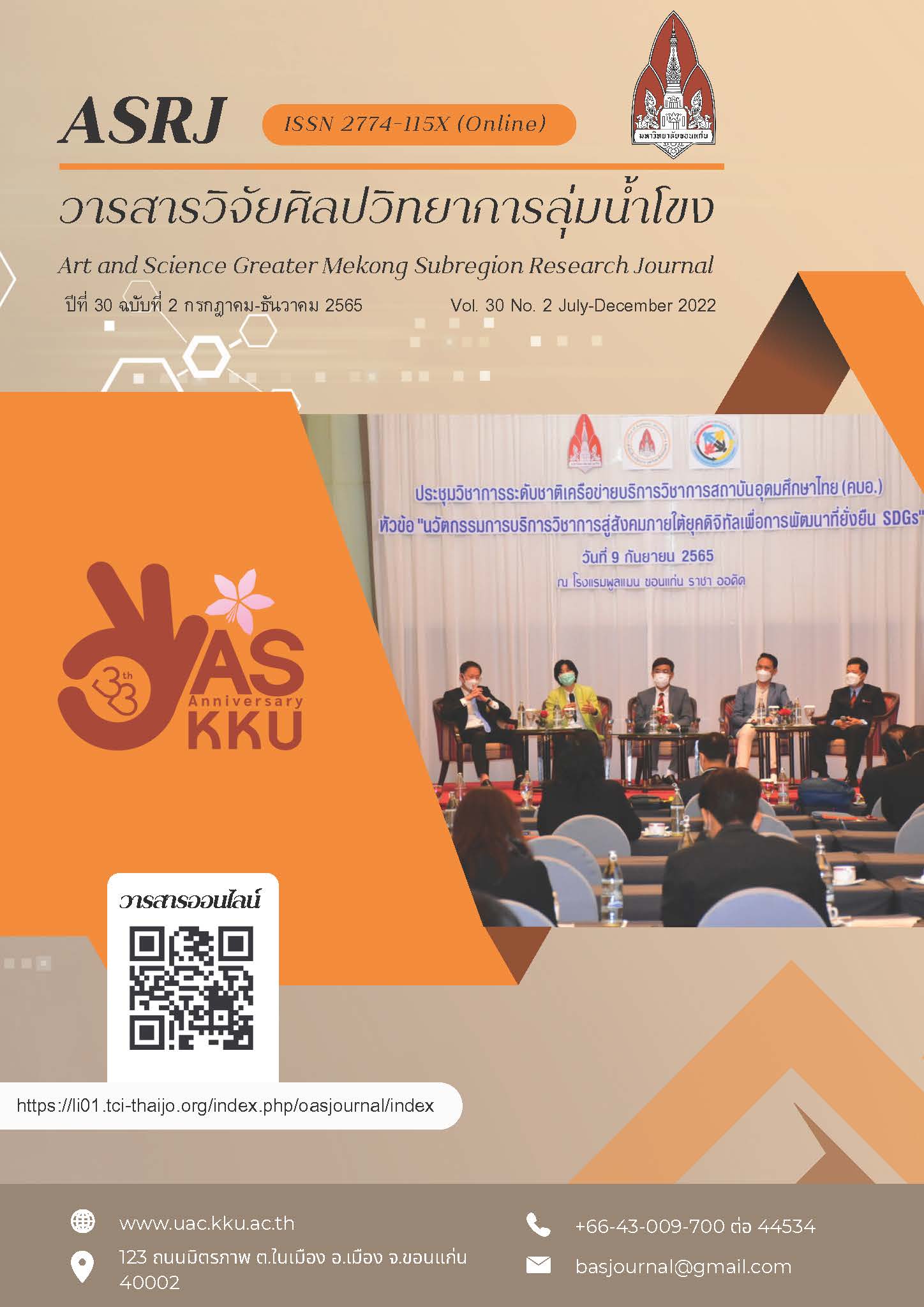การวิเคราะห์องค์ประกอบ ความเป็นผู้ประกอบการเพื่อสังคมของวิสาหกิจเพื่อสังคมในประเทศไทย A Confirmatory Factor Analysis Model of Social Entrepreneurship Features
Main Article Content
Abstract
การศึกษานี้มีวัตถุประสงค์ 1) เพื่อวิเคราะห์องค์ประกอบเชิงยืนยันของความเป็นผู้ประกอบการ
เพื่อสังคมในประเทศไทย และ 2) เพื่อทดสอบความสอดคล้องของโมเดลความเป็นผู้ประกอบการเพื่อสังคมในประเทศไทย กลุ่มตัวอย่างที่ใช้ในการศึกษาครั้งนี้คือผู้ประกอบการ ผู้บริหาร ของวิสาหกิจเพื่อสังคมในประเทศไทย เครื่องมือที่ใช้ในการวิจัยคือแบบสอบถามมาตราส่วนประมาณค่า 5 ระดับ ผลการวิจัยพบว่าผลการวิเคราะห์องค์ประกอบความเป็นผู้ประกอบการเพื่อสังคมของวิสาหกิจเพื่อสังคมในประเทศไทย ประกอบด้วย 4 องค์ประกอบ คือ 1) การสร้างนวัตกรรมเพื่อสังคม 2) ผู้สร้างคุณค่าทางสังคม 3) การบริหารผู้มีส่วนได้ส่วนเสีย และ 4) ความเป็นผู้นำการเปลี่ยนแปลง ซึ่งทั้ง 4 องค์ประกอบมีดัชนีที่ใช้ในการตรวจสอบความสอดคล้องและความกลมกลืนของตัวแบบกับข้อมูลเชิงประจักษ์ดังนี้ Chi-Square =63.26; df = 95 ; 2χ/df =0.665; RMASE =0.000; SRMR =0.023; CFI = 0.98 แสดงว่าแบบจำลองการวัดความเป็นผู้ประกอบการเพื่อสังคมของวิสาหกิจเพื่อสังคมในประเทศไทย มีความสอดคล้องกับข้อมูลเชิงประจักษ์ สามารถใช้วัดความเป็นผู้ประกอบการเพื่อสังคมของวิสาหกิจเพื่อสังคมในประเทศไทยได้
คำสำคัญ: ความเป็นผู้ประกอบการเพื่อสังคม, วิสาหกิจเพื่อสังคมในประเทศไทย, การสร้างนวัตกรรมเพื่อสังคม, ผู้สร้างคุณค่าทางสังคม, การบริหารผู้มีส่วนได้ส่วนเสีย, ความเป็นผู้นำการเปลี่ยนแปลง
Abstract
The objective of this study is 1) to analyze the affirmative elements of entrepreneurship
for society in Thailand. and 2) to test the consistency of the social entrepreneurship model in Thailand. The sample group used in this study was entrepreneurs and executives of social enterprises in Thailand. The research instrument was a 5-level estimation scale questionnaire. The results showed that the results of the analysis of social entrepreneurship characteristics of social enterprises in Thailand consisted of 4 components: (1) Social Innovation Creation (2) Social Value Creator (3) Stakeholder Management (4) Transformational Leadership. All four components have indices used to examine the consistency and harmony of the model with the empirical data: Chi-Square =63.26; df = 95; 2χ /df =0.665; RMASE =0.000; SRMR =0.023; CFI = 0.98. consistent
with the empirical data It can be used to measure social entrepreneurial characteristics of social enterprises in Thailand.
Keywords: Social Entrepreneurship Characteristics, Social Enterprise in Thailand, Social Innovation Creation, Social Value Creator, Stakeholder Management, Transformational Leadership


